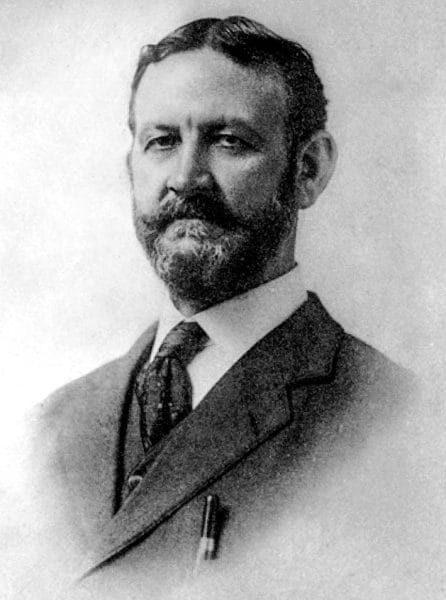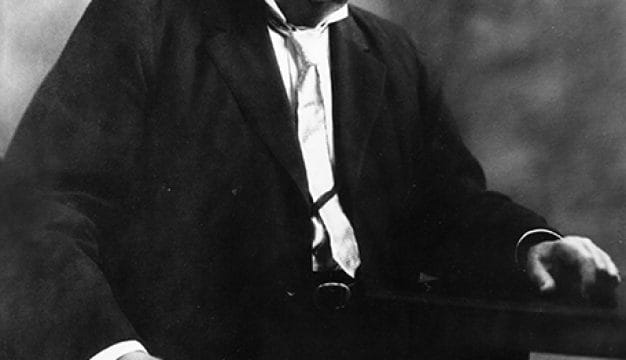Henry Clay Armstrong
 Henry Clay Armstrong
Henry Clay Armstrong (1840-1900) was Consul General to Brazil, Speaker of the Alabama House of Representatives, and State Superintendent of Education. Previously, he was a commissioned officer in the Confederate Army during the American Civil War. Later in life, he served on the Board of Trustees for Auburn University, until 1899.
Henry Clay Armstrong
Henry Clay Armstrong (1840-1900) was Consul General to Brazil, Speaker of the Alabama House of Representatives, and State Superintendent of Education. Previously, he was a commissioned officer in the Confederate Army during the American Civil War. Later in life, he served on the Board of Trustees for Auburn University, until 1899.
Armstrong was born in LaFayette, Georgia, on June 1, 1840, to Henry Holcomb and Elizabeth Sloan Armstrong; he was one of 9 children. Henry Holcomb moved his family from Georgia to Notasulga, at the time entirely in Macon County (portions are now in in Lee County), in early 1843. Armstrong received his higher education from East Alabama Male College (present-day Auburn University) in Auburn, also in Macon County at the time and now in Lee County.
After the Civil War began, Armstrong enlisted into the Confederate Army with his classmates. The Eighteenth Alabama Infantry Regiment was formed in Auburn on September 4, 1861. Entering service as a private, Armstrong became a respected soldier by his superiors. He was commissioned as an officer and worked his way to the rank of captain in Company F of the Eighteenth Alabama Infantry Regiment of which former U.S. Representative Eli Sims Shorter was a colonel. Also in the regiment was Edward C. Bullock of Barbour County who died in the war and for whom Bullock County is named. The regiment first saw action at the April 1862 Battle of Shiloh in Tennessee, where it was involved in the severe fighting on the 6th that led to the capture of Union major general Benjamin Prentiss and many troops. (Future U.S. Representative and U.S. general Joseph Wheeler was among the leaders of the adjacent Nineteenth Alabama at Shiloh.) Due to heavy losses, the Eighteenth was pulled back from combat and Company F was detailed to escort Prentiss and his men to imprisonment in Mobile, Mobile County. On September 20, 1862, Armstrong resigned from the military and began his law career; he had studied under a private tutor.
On May 29, 1866, Armstrong married Mary “Mollie” Hulda Harris, in Oak Bowery, Chambers County. They lived in Auburn for much of their life in a house that once stood across the street from Pine Hill Cemetery, on what is now Armstrong Street. The couple would have five sons and two daughters, but their daughters did not survive infancy. Their second oldest son, Henry Clay Jr., also served abroad, as the U.S. consul in Grenoble, France, and then in Spain as Secretary of the American Legation and he later served as mayor of Pensacola, Florida, from 1931-1936.
Armstrong practiced law until he was elected to the Alabama State Senate in 1876. In 1880, he was appointed as the Alabama State Superintendent of Education. The white Armstrong was a member of the large biracial committee that in 1882 organized the Alabama State Teachers Association and he would serve as its first president. The association would represent African American educators and interests until its merger with the Alabama Education Association in 1969. In 1883, his efforts nearly doubled the funding for Tuskegee University for its workers. He left the post in 1884 after he was elected to the Alabama State House of Representatives, representing Lee County, and was also elected speaker that year, serving one year. He would be replaced by future governor and federal judge Thomas Goode Jones. Armstrong was then appointed by Pres. Grover Cleveland to be the U.S. Consul General in Rio de Janeiro, Brazil in 1885. He held this position until 1889, after which he returned to the United States.
Armstrong belonged to the Alabama Free Masons and held various high positions in the fraternal order, including Grand Secretary of the Masonic Lodge, Grand Bodies, and in 1892 was appointed the recorder of the Grand Commandery of Alabama. After Armstrong settled back into his law career, he joined the Board of Trustees at Alabama Agricultural and Mechanical College (present-day Auburn University). He served as a board member from 1890 to 1899 and sat as a member of the school’s Executive Council charged to keep the business end of the school going in between Board of Trustee meetings.
Henry Clay Armstrong died of heart failure on December 18, 1900, in Auburn. He remains notable in Auburn for having the tallest monument in Pine Hill Cemetery; the road on which it sits was renamed in his honor.
Further Reading
- Draughon, Ralph Jr., Delos Hughes, and Ann Pearson. Lost Auburn: A Village Remembered Through Period Photographs. Montgomery, Ala.: NewSouth Books, 2012.
- Schafer, Elizabeth. Auburn: Plainsmen, Tigers, and War Eagles. Charleston, S.C.: Acadia, 2003.



